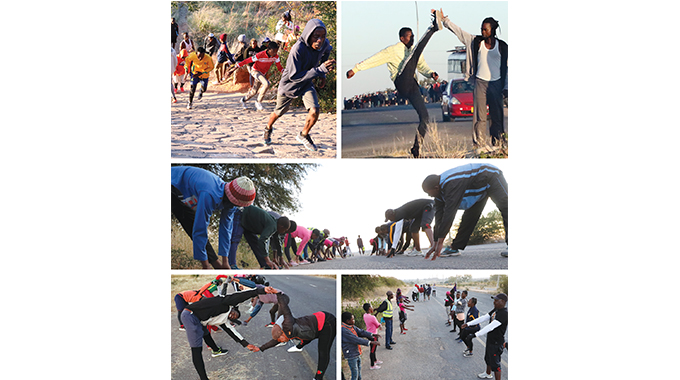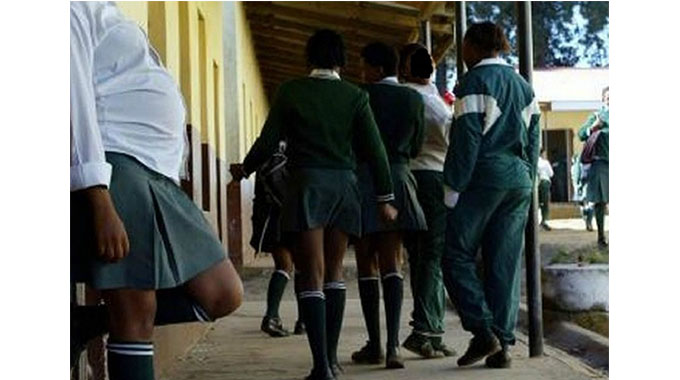Teams must monitor player fitness during Covid-19 lockdown

Dingilizwe Ntuli Sports Editor
THE country is currently at a crossroad right now, as Government battles with the decision of when to jump-start the economy stagnated by fear of the Covid-19 pandemic that forced governments all over the world to impose stringent lockdowns following a global outbreak that started making waves in February.
In the very first lockdown, people were initially confined to their homes, but lately most countries, including Zimbabwe, have relaxed lockdown regulations that were being done in phases. Initially, only essential services workers were allowed to go to work, while the rest of the workforce was virtually under “house arrest”.
It’s now five months since Government declared a lockdown in Zimbabwe, and although more relaxations have been made lately, life still hasn’t returned to normal, and actually will not return to what we were used to pre-lockdown in March. There’s no doubt that people’s day-today lives have been affected and they’ve been forced to adopt or adapt to drastic adjustments, with the hope that there will be a vaccine breakthrough to allow for a complete lifting of the lockdown and its accompanying curfews.
Yes, economies have taken a severe battering during the subsistence of the lockdowns worldwide and it is now clear that some leading economies are heading for recession. Despite no certainty when this pandemic will be contained, most professional sport has resumed in Europe, Asia, the United States of America, Australia and a few African countries, albeit without fans.
Although they resumed competitions without supporters to complete seasons that had been disrupted by the Covid-19 enforced lockdowns, these are countries where television rights alone can sustain sport, unlike some African countries which depend on gate takings for sustenance, particularly Zimbabwean football. In that regard, spare a thought for locally based Zimbabwean sportspersons. In five months, they haven’t trained together as teams and it’s now four months before the year ends.
Forget the bravado talk by some coaches and officials that each player or athlete had been given individual training programmes to follow at home and they were remotely monitoring them to ensure adherence. It would be interesting to find out how clubs, be it football, rugby, netball and cricket, among others, have been monitoring their players since the lockdown in March. Even if there had been some form of remote monitoring, it can’t be easy to judge someone’s fitness levels just by watching a short video clip of them going through a training exercise routine.
Physical monitoring over a prolonged period returns the best results, and the longer this lockdown remains in place, the more gloomy for Zimbabwean sport. The country’s most popular sport, football, will be the hardest hit by the continued lockdown under which team training is prohibited.
The first cases of the novel virus in Zimbabwe struck just a week before the Premier Soccer League was due to start. This was after the league’s curtain raiser, Castle Challenge Cup, featuring league champions FC Platinum and Chibuku Super Cup winners Highlanders in March. It remains the only competitive game that was played before everything screeched to a halt following a lockdown announcement and suspension of all sporting activities. Even in that game, most players looked unfit despite a full pre-season preparation from January after the Christmas break and coaching staff were saying full fitness levels would be achieved after about six matches.
Now if players were unfit after a two-month pre-season training period as a team, there should be an increasing concern regarding whether they will be fit to perform when asked to do so now. Are our players disciplined enough to stick to a particular individual training regime that only a few touch ups would be needed to get them into full shape in a short space of time to play competitively? Can they afford the diet needed to stay in shape?
At least during the season some dietary requirements were met by the club during camping for a match, but can they bother themselves with dietary issues when all they want is to survive since there’s no extra income in the form of bonuses they receive when active. It’s worrisome that the Warriors could be forced to play in the Africa Cup of Nations and World Cup qualifiers before the end of this year, and just how will the coach be expected to assemble a team when there has not been any club training for five months now.
Bear in mind that clubs outside our borders will flatly refuse to release our foreign legion for Warriors’ duty fearing they might be exposed to coronavirus infection and we have to brace for the exclusive use of locally-based players for any internationals. Zifa has surprisingly been quiet, a sign that the association is happy with the status quo.
That Zifa is not bothered by the long lay-off is testament that it has no active plan in place for the return of the game in the country at any level. This is the time the Zifa executive committee should be grappling with questions regarding the safe return of football in the country. In neighbouring South Africa, Safa took an active role and even clashed with the Premier Soccer League over resumption of their league until they found each other. Safa ensured every player, official and referee was tested for Covid-19 before entering the bio-bubble where they’re all staying until the season ends.
Whereas here not a single player has been tested in a sign that Zifa is probably content with there being no action this year, while it continues to feast on Fifa funds. Zifa board members can’t use Fifa funds for patronage, as is seemingly happening now. Fifa funds are not for shopping and should not be used to prop up certain candidates for impending elections, but used solely for the advancement of our football. Shopping can come later.
If Zifa was serious, it should have drawn up a plan ensuring every player and recognised officials are tested for Covid-19. This responsibility can’t be passed onto the PSL, but must be led by Zifa. The Covid-19 relief fund that Fifa will release to Zifa must be used to test players and officials for the virus so that they know where they stand when approaching government seeking permission to at least resume training for teams.
Players can’t be permanently confined to their homes simply because Zifa is not bothered and waiting for the government to lift all restrictions. Some restrictions still exist in countries where sport has resumed and it has only been allowed to return because those associations presented plausible plans to their governments to protect players from infections.
Presently news about Zifa is almost always dominated by money and disciplinary squabbles as well as counter accusations, but no clear chart on the way forward. Government will not just announce the return of football or sport without any meaningful representations from relevant national sports associations. They have to present a clear vision on precautions put in place to prevent Covid-19 infections at training and in game situations should return to action be granted.
The foundation for resumption of competitive matches in other leagues and sport around the world was generally the comprehensive hygiene and organisation concept drawn up by the respective federations, something our associations currently fall far short of.
All national sports associations should consider the mental toll this pandemic fuelled suspension of sport has had on their athletes and act now because we don’t have enough mental conditioning coaches to assist players out of their current mental siege.
They must present a detailed concept with medical support to the government, clearly showing what measures will be taken, depending on the pandemic status, to achieve their objectives. It’s folly to wait and hope that the pandemic ends. Welcome to the new normal to Zifa and other national sports associations. It’s an increasingly grim reality; it’s eerie and unfortunately looks like it’s here to stay.












Comments